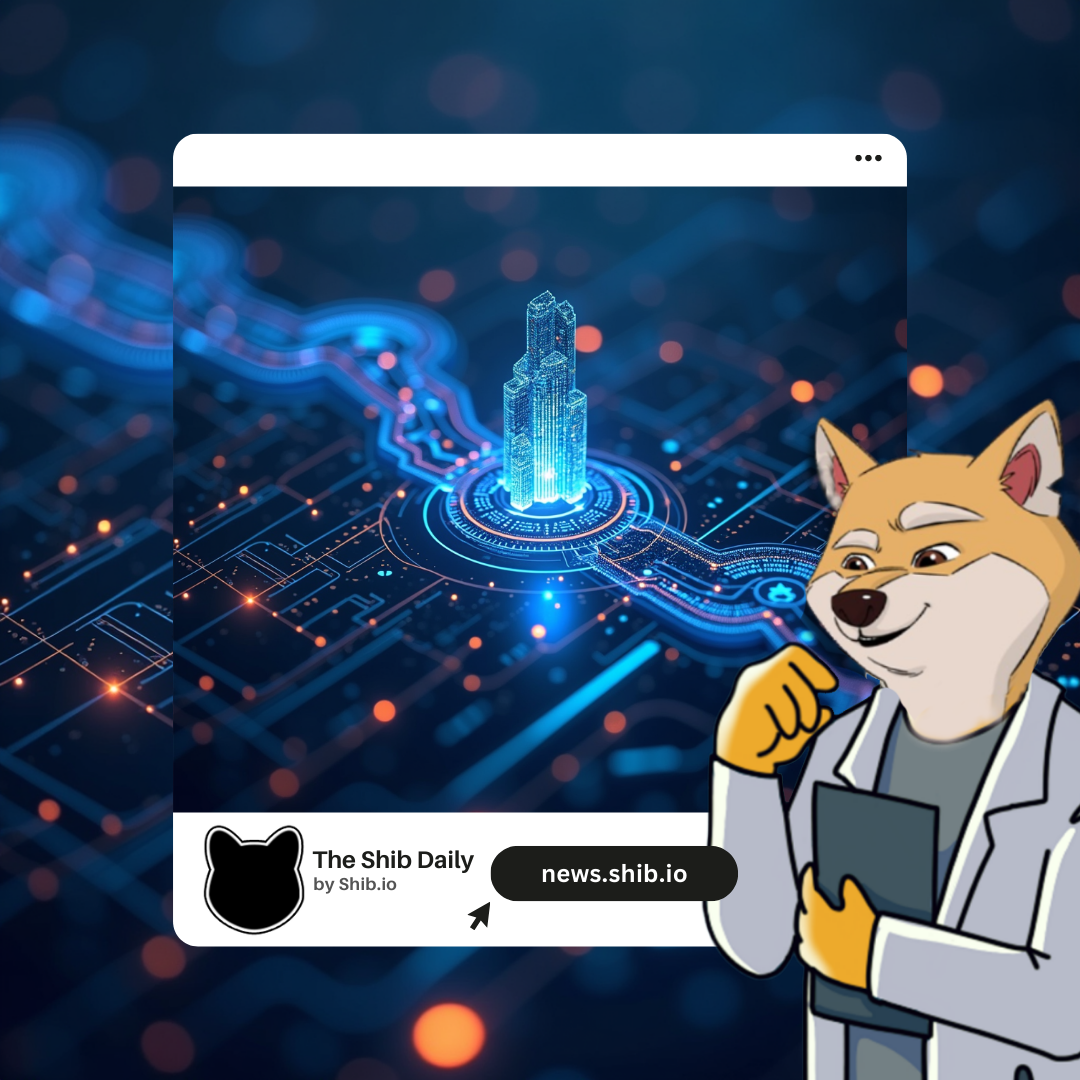Imagine a global supply chain where every transaction is as clear as glass – blockchain is making that vision a reality. Blockchain technology is a revolutionary distributed ledger system that records transactions in an immutable, decentralized manner, reducing the need for intermediaries. It offers a secure and transparent method of recording data, which is transforming industries by enhancing trust and efficiency.
Transparency and efficiency are crucial in global supply chains, where countless participants—from manufacturers to retailers — must coordinate seamlessly. Clear visibility into every step of a product’s journey not only builds trust among stakeholders but also reduces risks like fraud and counterfeit goods while streamlining operations.
Modern supply chains face significant challenges such as fragmented data, limited traceability, and disruptions from geopolitical or environmental factors. These issues can lead to delays, increased costs, and inefficiencies that undermine the overall effectiveness of the supply chain. Having blockchain in supply chains promises to address these challenges by providing a unified, transparent, and efficient framework for managing complex supply networks.
Understanding Blockchain Technology
Blockchain records trаnsactions in a secure, decentralized, and tamper-proof manner. At its core, it operates on several fundamental principles:
• Decentralization – Unlike traditional databases controlled by a single authority, blockchain distributes data across a network of computers. This means no one entity controls the entire ledger, fostering trust among participants and reducing the risk of system failures.
• Immutability – оnce data is recorded on the blockchain, it cannot be altered or deleted. This creates a permanent and reliable record of every transaction, ensuring that historical data remains accurate and tamper-proof.
• Transparency – Every transaction on a blockchain is visible to all participants in the network. This open access enables real-time tracking and verification of data, which is essential for accountability and building trust among all parties.
• Security – Blockchain employs advanced cryptographic techniques to secure data. These security measures protect against unauthorized access and cyber threats, ensuring that the information remains confidential and intact.
In supply chain management, these features offer transformative benefits. Decentralization enables all stakeholders — from manufacturers to retailers — to work from the same verified information source, reducing miscommunication and streamlining operations.
Immutability ensures that the complete history of a product’s journey — from origin to consumer — is accurate and resistant to fraud, thereby enhancing traceability.
Related: Kusama Reveals Details Of New AI Product in Recent Livestream
Transparency allows businesses to monitor goods in real time, providing accountability and reducing the risk of counterfeit products. Lastly, robust security measures safeguard sensitive information throughout the supply chain, protecting both businesses and consumers from potential cyber risks.
Current Challenges in Supply Chains
Modern supply chains face several persistent challenges that can hinder operations and undermine stakeholder confidence:
Lack of Transparency and Traceability
In many traditional supply chains, tracking a produсt’s journey from raw material to consumer can be extremely difficult. Data is often stored in isolated systems across different companies, leading to fragmented records that are prone to errors or intentional manipulation. Without a single, reliable source of information, verifying product authenticity and quality becomes a complex and sometimes unreliable process, leaving room for counterfeiting and fraud.
Inefficiencies and Delays in Logistics
Many supply chains rely on outdated systems and manual processes, which can cause significant bottlenecks. Coordination between multiple intermediaries — such as suppliers, manufacturers, and distributors — often leads to redundant paperwork and miscommunications. These inefficiencies not only delay the delivery of goods but also increase operational costs, ultimately affecting profitability and customer satisfaction.
Issues of Trust and Accountability Among Stakeholders
With so many independent entities involved in moving products from origin to market, building trust can be a major challenge. Each participant may be reluctant to share critical information, and discrepancies in data can lead to disputes over responsibility and payment. This lack of accountability can create friction and erode the confidence that is essential for smooth and reliable operations.
Real-World Examples of Supply Chain Problems
Traditional supply chains often encounter issues that can disrupt operations and erode trust.
- Food Industry – Inadequate traceability has delayed pinpointing contaminated products during foodborne illness outbreaks, complicating rеcalls.
- Pharmaceuticals – Opaque supply chains have allowed counterfeit drugs to enter the market, posing significant public health risks.
- Global Logistics – The COVID-19 pandemic exposed vulnerabilities in outdated supрly systems, leading to shipment delays and shortages of critical supplies.
How Blockchain in Supply Chains Can Address Challenges
Blockchain technology addresses these supply chain challenges through several key mechanisms:
Transparent Record-Keeping and End-to-End Traceability
Blockchain’s immutable ledger records every transaction and movement of goods along the supply chain. This creates a single source of truth that is accessible to all authorized parties, enabling end-to-end traceability. For instance, in the food industry, systems like IBM Food Trust allow retailers and suppliers to quickly trace produce from farm to table, reducing the time needed to identify and remove contaminated products.
Smart Contracts for Automating Processes
Smart contracts are self-executing agreements encoded on the blоckchain that automatically enforce terms when predefined conditions are met. In supply chains, this means tasks such as triggering payments, managing inventory, or verifying compliance can occur seamlessly and without manual intervention. Automating these processes not only speeds up operations but also minimizes errоrs and administrative overhead.
Related: Shiba Inu Secures Victory on CoinGecko with New Page Update
Improved Datа Integrity and Stakeholder Trust
Because blockchain data is both immutable and decentralized, it is inherently resistant to tampering and fraud. This ensures that all parties — whether manufacturers, distributors, or retailers — are working with accurate and reliable information. Enhanced data integrity builds trust among stakeholders, reducing disputes and fostering smoother collaboration across the supply chain.
Case Studies and Industry Applications
Leading companies are already harnessing blockchain in supply chains. For example, Walmart’s partnership with IBM Food Trust has enabled the company to track the origin and journey of fresh produce in real time, significantly improving food safety. Similarly, Maersk’s collaboration with IBM to streamline international shipping has reduced paperwork and increased the overall transparency of global logistics networks.
Implementation Considerations
Implementing blockchain in supply chains requires careful planning. сompanies must integrate blockchain with existing legacy systems using middleware or APIs to ensure smooth datа exchange. The solution must also be scalable to handle increasing transaction volumes without compromising speed.
Additionally, while blockchain can offer long-term efficiency gains, the upfront costs — including technology investments and training — are significant, and companies must navigate varying regulatory standards. Starting with pilot projects helps organizations test the technology, adjust processes, and build stakeholder confidence before a full-scale rollout.
Collaboration with industry groups can also help set common standards and overcome intеroperability challenges.
Future Trends and Innovations
Blockchain technology continues to evolve, and its convergence with the Internet of Things (IoT) is set to further transform supply chain management. IoT devices — such as sensors and smart tags — can monitor and relay real-time data on product conditions and locations. When this live information is recorded on a secure, immutable blockchain, companies gain enhanced visibility and can respond instantly to issues, such as temperature fluctuations in perishable goods or unexpected delays.
As industry standards evolve, emerging best practices focus on creating interoperable systems that streamline operations and reduce fraud. Experts predict that these advances will not only lower costs but also transform global trade by building more rеsilient, efficient, and trustworthy supply chains.
Conclusion
In summary, blockchain offers a powerful solution for modern supply chain challenges. Its decentralized, immutable, transparent, and secure nature improves traceability, reduces fraud, and streamlines operations. The integration of IoT further enhances real-time tracking and responsiveness, while evolving industry standards promise even smoother adoption.
Businesses are encouraged to explore blockchain solutions as a way to boost efficiency, reduce costs, and build greater trust with consumers and partners. As global trade becomes more complex, еmbracing blockchain could be the key to creating resilient, transparent, and efficient supply chains for the future.












